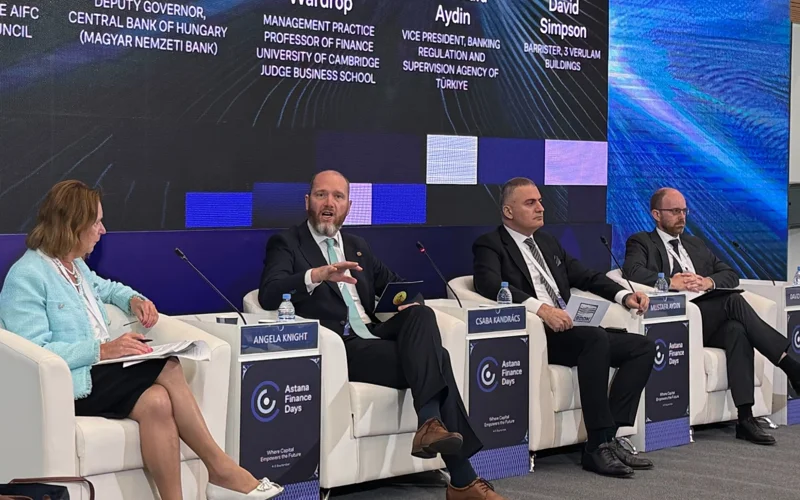AI emerges as a key tool in the financial sector
Artificial intelligence (AI) is taking center stage in the global financial sector, creating new opportunities while also posing serious risks. This was highlighted by representatives of the central banks of Hungary and Türkiye during a panel session at Astana Finance Days, Kazinform News Agency correspondent reports.

Hungary: Tackling cybercrime and green disclosures
Dr. Csaba Kandrács, Deputy Governor of the Central Bank of Hungary (Magyar Nemzeti Bank), presented the country’s new AI-powered system for detecting fraudulent transactions.
“All of the banks that send the transaction have the possibility to ask this central fraud detection system to give them a score, a potential fraud score — both for the sender and the receiver of the transaction. And it happens within five seconds, because nowadays practical instant payments take only two seconds. Soon it will take just 0.5 seconds to ask and get back a score,” he explained.
According to him, the system processes billions of daily transactions, and its accuracy will improve as more data is accumulated. Kandrács noted that AI is also being applied to verify the credibility of companies’ ESG disclosures.
“The Hungarian solution could spread and also for instance, the Kazakh AI solution could spread all over the world and we can learn from each other,” he added.
Türkiye: Opportunities and risks of AI
Dr. Mustafa Aydin, Vice President of the Banking Regulation and Supervision Agency of Türkiye (BRSA), stressed that AI is no longer a concept of the future but an integral part of today’s financial system.
“AI is not the future idea anymore. It’s already here with us… Like many other things in life, AI also brings some opportunities and challenges,” he said.
Aydin outlined the advantages of AI, such as real-time supervision, automation, and improved efficiency. However, he also underlined significant risks, including strategic, legal, operational, and reputational challenges.
The speaker warned that poor-quality data could undermine trust.
“Bad data equals bad results. You might ask the same question twice and get different answers.” He also highlighted cybersecurity threats: “AI tools can accidentally include or reveal confidential information… criminals can launch novel attacks such as prompt injection or poisoned training data.”
Both speakers agreed that adopting AI in finance requires striking a balance between speed and security, innovation and accountability. Participants from Kazakhstan expressed interest in learning from Hungary’s and Türkiye’s experiences, given the country’s own ambitions for digital transformation.
Earlier, it was reported that Kazakhstan’s civil aviation sector is demonstrating dynamic growth and strengthening its position as a regional transit hub.
